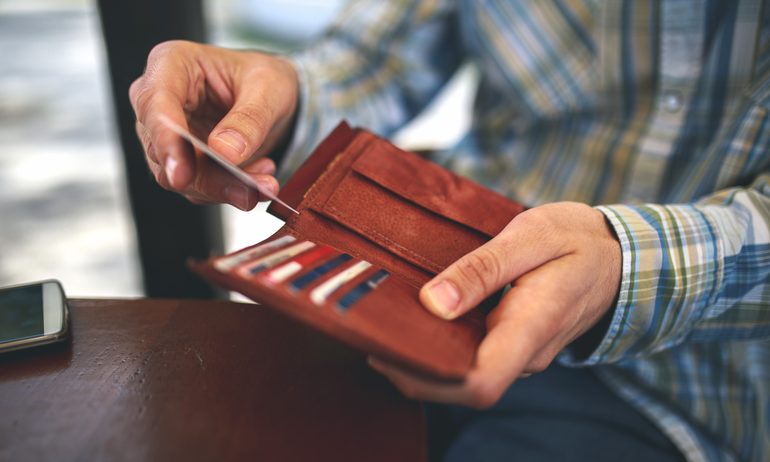What Is an Unsecured Credit Card?
Most credit cards are unsecured, meaning you do not have to provide any collateral for the money you borrow.

Many or all of the products on this page are from partners who compensate us when you click to or take an action on their website, but this does not influence our evaluations or ratings. Our opinions are our own.
An unsecured credit card is just another name for a "regular" credit card. Unsecured means that debt on the card is not backed or secured by collateral. All the lender has is your promise to pay it back.
With traditional loans, you must offer something as collateral to reduce the risk to the lender that you won't repay the money. A car loan or home mortgage, for example, is backed by the car or house itself. If you fail to make your payments, a repo man will come to take your car or the bank will foreclose on the house. Go to a pawnshop and hock your old guitar for cash — same concept. You can get your guitar back when you repay the loan. Keep the money, and the pawnbroker sells the guitar. Loans with collateral are referred to as secured.
Unsecured cards: No security deposit
Unsecured credit cards, however, have no collateral requirement. The card issuer just has to take your word for it that you're going to pay for the purchases you make. That's why unsecured cards are hard to qualify for if you have bad credit or no credit history. Your credit history is essentially a record of how well you've kept your promises to repay borrowed money. If you don't have a good track record (or any track record) in this area, lenders will be reluctant to lend you money.
Since the vast majority of credit cards are unsecured credit cards, you don't hear the word very much, except when it's necessary to distinguish unsecured cards from secured credit cards.
As the name suggests, secured credit cards are backed by collateral. You must put down a cash security deposit to open an account, and that deposit is usually equal to your credit limit. Since you can't charge more on the card than you have deposited, there's minimal risk to the lender. If you don't pay your credit card bill, the lender can take your deposit. That's why secured credit cards are a popular option for people with bad credit or no credit.
Who qualifies for an unsecured credit card?
The most popular credit cards are unsecured. You typically need good to excellent credit to qualify for unsecured credit cards with the richest rewards or the lowest interest rates. Good credit is generally defined as a credit score of 690 or better.
» GOOD CREDIT? See NerdWallet's best rewards credit cards
A step down from good credit is fair credit, also called "average" credit. The credit score range for fair credit is roughly 630 to 689. There are a number of excellent unsecured cards for fair credit, including some that offer rewards, charge no annual fee or both.
» FAIR CREDIT? See NerdWallet's best credit cards for fair credit
Are there any unsecured credit cards available to people with bad (629 and below) credit? Yes, but we generally don't recommend them. Unsecured cards for people with bad credit tend to charge exorbitant fees for small credit lines. It's not unusual to see annual fees of $99 on unsecured cards, plus monthly maintenance charges, as well as application and processing fees — all to get a credit limit of $200. Within a year or two, these fees can easily add up to more than the $200 or $300 minimum deposit you owe on a secured card. And unlike with a secured card deposit, you don't get these fees back.
» BAD CREDIT? See NerdWallet's best secured credit cards
Finally, several issuers have begun offering unsecured credit cards for people who have no credit history at all — good or bad. Instead of focusing on credit scores and credit reports, these issuers can evaluate applications by looking at income, occupation, bank account balances and even such things as where an applicant went to college and what they studied.
» NO CREDIT HISTORY? See NerdWallet's best alternative cards or NerdWallet's best starter cards for no credit
Find the right credit card for you.
Whether you want to pay less interest or earn more rewards, the right card's out there. Just answer a few questions and we'll narrow the search for you.

